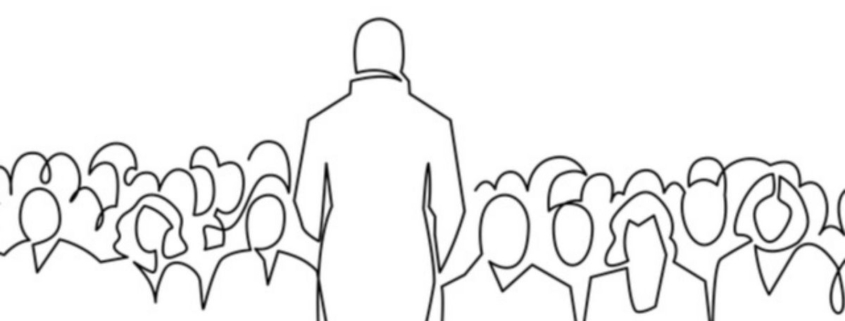Intent vs. Impact
Have you ever delivered a presentation or even a passing comment that felt good in the moment, only to be met by some strange looks in the crowd? If you’re Jane Campion, you probably know the feeling. The Power of the Dog director, who accepted a Critics Choice award onstage earlier this week, could have used her precious seconds onstage to celebrate the nominees or inspire future female directors. Instead, she used the moment to undermine the accomplishments of tennis legends Venus and Serena Williams. “Serena and Venus, you are such marvels. However, you don’t play against the guys, like I have to.” Her comment was harmful and oblivious. From the looks of the video, she seemingly had no idea what she had just done. (If you’re not following why her comment was harmful, read more about that here.) What we do—and say— with our precious moments matters. Like Jane Campion, many of us have gotten caught up in the moment and unintentionally said something that we soon regret. Jane Campion is not the first and won’t be the last to have a “lapse in judgement” on stage. it happens all the time. People in high-profile moments and small group meetings, aiming to make the most of a moment. But our words and actions don’t always land the way we intend. What to do when it happens to you? Start by understanding the difference between intent and impact:
- intent is what you have in mind when you decide to perform an action. Your intent reflects what type of impact you want to create with your actions.
- impact is the result of those actions. The results aren’t necessarily the same as what you intended. Impact reflects the reality of your actions.
If your good intentions have caused an unintended impact, take time to recognize the disconnect. You meant one thing, but your words caused something else. Rather than jump to the defensive, take a pause and acknowledge the effect of your words. A few weeks back, I had one of these moments. I was in an after-hours meeting with colleagues, and I made a passing reference to meeting next time over a glass of wine. I knew immediately it was a mistake, confirmed by the comments that followed. I know better than to assume everyone in this gathering would be comfortable with the thought of alcohol present. My good intentions had a negative impact. I was so upset with myself that I froze and missed the opportunity in the moment to acknowledge the impact of my words. I quietly sat with my misstep after the gathering ended, and then sent a note of apology to the folks who had been impacted by my comment. Later that week, I suggested that we connect by phone so I could learn more about how my comment had hurt, and to apologize. The gesture was welcomed and gave me a deeper understanding of my colleagues’ points of view. It wasn’t an easy conversation, but it reinforced how much I cared, and how sorry I was for the misstep. Here are a few tips if you find yourself in a similar situation:
- If you’ve said something you didn’t intend and think you may have harmed or hurt someone in the process, it’s OK to take a pause. Think for a moment why what you said could have been harmful, even if your motivation was good.
- After you’ve given yourself a moment of pause, validate the actual impact that your actions had. You can do this by acknowledging to your peers, family. or friends that you can see how you hurt them. Try simply noticing aloud what you’re seeing, such as: “I can tell what I said didn’t go over as intended. I want to pause here and acknowledge that.”
- The crucial final step is to apologize for the impact your words or actions had. While it can feel hard to apologize for something we didn’t mean to do, it is essential if you care about building or maintaining trust with those who were on the receiving end of your comments. You may not always understand in the moment why your words had such an impact, but the apology matters. Try this, “I want to apologize for any harm I caused by my comment. I intended to raise the issue as I’ve experienced it, but I poorly chose to compare my circumstances with yours. That was unfair, inappropriate and oblivious. I am so sorry.”
Bottom Line: Acknowledging impact vs intent starts with having the self-awareness to recognize when impact has occurred, then showing the strength of character to admit your fault. Take time to understand why your comment was harmful, so it doesn’t happen again. Acknowledging intent vs. impact can be hard, but the good news is, even in moments of poor judgement, we can turn something bad into something good again.
This is week 11 of the Finding The Words column, a series published every Wednesday that delivers a dose of communication insights direct to your inbox. If you like what you read, we hope you’ll subscribe to ensure you receive this each week.





 Check out our new
Check out our new